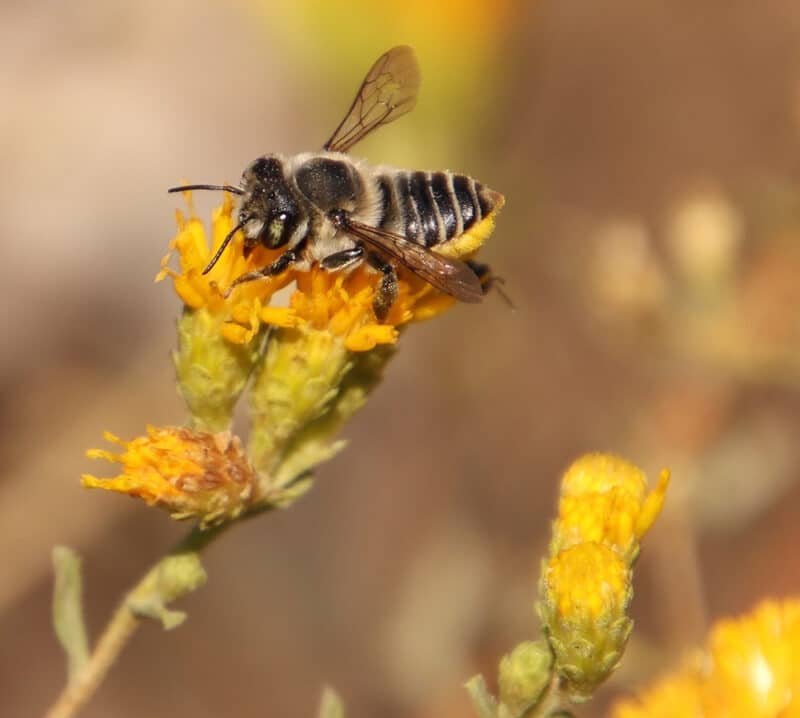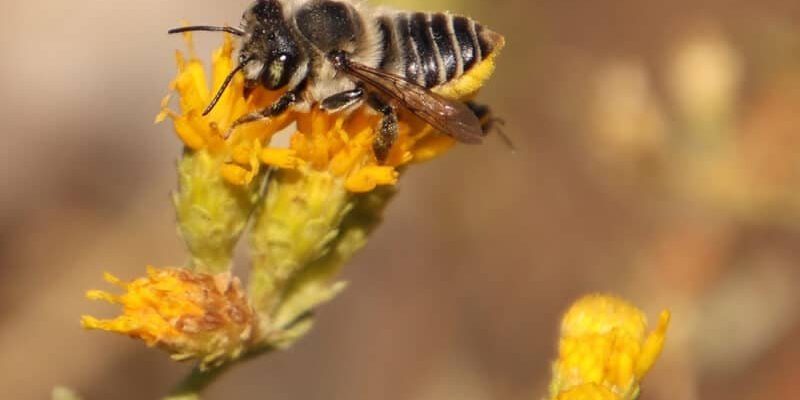
Leafcutter bees belong to the Megachile family and are often recognized for their unique behavior of collecting leaf pieces to build their nests. Unlike honeybees, which live in large colonies, leafcutter bees are more solitary, preferring to raise their young in small, individual nests. While they may not produce honey like their more famous counterparts, their role in pollination is crucial, especially in gardens and farms. So, let’s explore further and see if keeping these little creatures is a viable option for you!
What Are Leafcutter Bees?
Leafcutter bees are small, typically measuring between 5 to 25 millimeters in length. They come in various colors, including black, blue, and green, and are often mistaken for wasps due to their smooth bodies. Here’s where it gets interesting: these bees have specialized mouthparts that allow them to cut out circular pieces from leaves and petals. Why do they do this? Well, they use these pieces to line their nests, which can be found in natural cavities like old wood or even in man-made bee hotels.
Unlike honeybees, leafcutter bees are solitary creatures. They don’t live in large colonies or produce honey, but that doesn’t make them any less important! Each female bee creates her own nest, where she lays eggs and provides food for her larvae. The food consists of pollen mixed with nectar, making a nutritious meal for the growing bees. So, even though they might not produce honey, their effect on plant growth and crop yields is significant.
Why Are Leafcutter Bees Important?
You might be wondering why you would even consider keeping leafcutter bees. The truth is, these little pollinators are superheroes in the world of gardening and agriculture. They are excellent pollinators, known for their ability to visit a wide range of plants, including fruit trees, vegetables, and flowering crops.
Their unique way of pollinating—often referred to as “buzz pollination”—can help increase the yield of your plants. They’re particularly good with plants like tomatoes and blueberries. If you have a garden, inviting leafcutter bees to your space could lead to a bounty of fruits and veggies!
Another advantage of leafcutter bees is their efficiency. They tend to work more quietly and don’t require the same level of management as honeybees. This means you can enjoy the benefits of pollination without the demands of a large hive. If you’re looking to support your local ecosystem while enjoying a flourishing garden, keeping leafcutter bees might be a great option for you.
How to Keep Leafcutter Bees
So, how do you go about keeping leafcutter bees? It’s not as complicated as it may sound. Here are some steps to get you started:
- 1. Choose the Right Location: Leafcutter bees thrive in sunny areas with plenty of flowers. A garden filled with native plants will attract them.
- 2. Provide Nesting Sites: You can buy or build bee hotels specifically designed for solitary bees. These can be as simple as a block of wood with drilled holes or commercial bee houses.
- 3. Offer the Right Food: To ensure they thrive, plant a variety of flowering plants that bloom at different times throughout the season. This will provide a consistent source of food.
- 4. Avoid Pesticides: Chemicals can be harmful to these delicate creatures. Opt for organic gardening methods to keep them safe.
Keeping leafcutter bees can be a rewarding experience. Not only do you help maintain a healthy ecosystem, but you also get to observe these fascinating insects in action!
Challenges in Keeping Leafcutter Bees
While keeping leafcutter bees is generally easier than managing honeybees, there are some challenges to consider. One of the main issues is their nesting behavior. Since they prefer to nest in pre-existing cavities, it can sometimes be hard to find ideal spots for them in your garden.
You may also deal with competition from other solitary bees or insects that try to use the same nesting sites. This can lead to some frustration if you’re trying to attract leafcutter bees specifically. Maintaining a clean and inviting habitat will help mitigate these issues, but it does require some effort.
Another potential challenge is managing their populations. If you’re new to bee keeping, it’s essential to monitor their activity and ensure they have enough food and shelter. This can be a steep learning curve, but the rewards of a thriving garden and healthier plants are well worth it.
Comparing Leafcutter Bees to Honeybees
You might be curious about how leafcutter bees stack up against honeybees. Here’s a quick comparison to help you understand the differences:
| Feature | Leafcutter Bees | Honeybees |
| Type of Nest | Solitary | Colony |
| Honey Production | No | Yes |
| Pollination Style | Buzz pollination | General pollination |
| Management Level | Low | High |
As you can see, both types of bees have unique strengths and weaknesses. If you’re looking for a more low-maintenance option, leafcutter bees might be the way to go. On the flip side, if you’re interested in honey production and enjoy the intricacies of hive management, honeybees may suit you better.
Final Thoughts on Keeping Leafcutter Bees
In a world where pollinators are becoming increasingly threatened, keeping leafcutter bees can be a simple yet impactful way to contribute to their survival. They’re not just beneficial for your garden but also for the environment. By providing safe nesting sites and ample food, you can foster a thriving population of these wonderful insects.
Plus, it’s an intriguing hobby that connects you with nature. Watching these bees go about their tasks can be both calming and inspiring. So, if you’ve got a garden space and a little patience, consider inviting some leafcutter bees into your life. You might just find that they bring more joy—and more blooms—than you expect!

